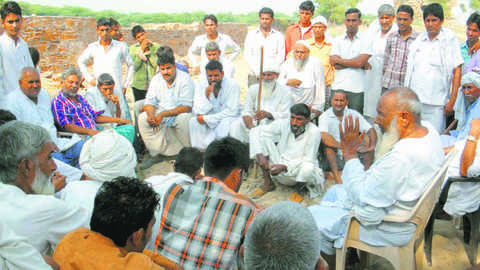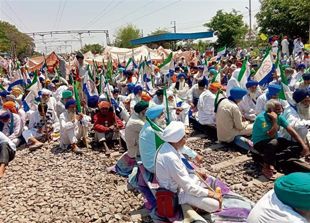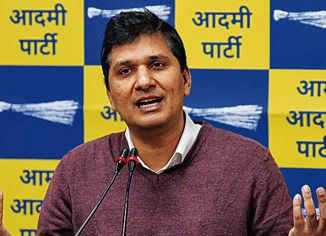
Inderjit Singh
The recent Supreme Court judgement upholding the Haryana Panchayati Raj (Amendment) 2015, has resulted in a majority of the voters becoming ineligible to contest elections to panchayati raj institutions (PRIs). The conditions for elections to PRIs include minimum educational qualification, no defaulting in payment of arrears of cooperative societies and cooperative banks loans and power bills arrears. Other eligibility criteria includes having a functional toilet and not being charged of a criminal offence leading to 10 years or more of punishment.
Each of these conditions debars a section of people from contesting the elections but the most exclusive is the condition of minimum educational qualification. The pertaining amendment to Section 175 of the Haryana Panchayati Raj Act (1994) specifies the educational qualifications as matric pass for general category males, middle pass for Scheduled Castes and general category females. For SC women candidates contesting for the post of panch the educational qualification is primary pass.
The petitioners, while pleading their case, had submitted in the Supreme Court that owing to these conditions above 64 per cent of the population eligible to contest would become ineligible. The eligible age is 21. They had cited data from the National Population Register (Census 2011). The respondent, the government of Haryana was asked by the Supreme Court to submit an affidavit for the data of population that would be rendered ineligible due to the conditions. The government submitted that only 43 per cent would be ineligible. The government had derived its figures from the same source as petitioners, that is, the National Population Register (Census 2011). There is a huge gap of 21 per cent points.
Thus, different figures for eligibility to contest the elections have been produced by contending parties, quoting the same source. The Supreme Court for reasons unknown has totally relied on the figures of the state government (which are factually wrong). It neither considered the figures provided by the petitioners nor did it question the authenticity of the same. The state government has mischievously and intentionally provided the figures of population with an education level of primary and above, instead of a population with an education up to matric and above, actually the criteria incorporated in the amendment. Primary standard education criteria has been fixed for SC women contesting for the post of a panch, with the intention of minimising the extent of ineligibility through distortion of the actual figure.
Those rendered ineligible can be grouped in four broad categories. These are: The population of men of the general category above the age of 20, with education less than matric is 2,17,8625, out of the above-20 years total population of 39,16,266. That is, 55.63 per cent becomes ineligible to contest where the condition is matric for all posts of PRI. Similarly, the figure for general category women below middle pass is 24,99,935, out of a total population of women 36,41,782. So, 68.25 per cent become ineligible to contest the elections as the condition is middle pass. The figure for SC men above 20 years, with an education less than middle, is 6,68,893 out of a total population of 10,76,168. That makes 62.16 per cent ineligible. The population of SC women above 20 years, with education below middle class (condition for sarpanch, block samiti and zila parishad candidates) is 8,13,551 out of a total of 9,79,488. That makes 67.52 per cent ineligible. The population of SC women above 20, educated below the primary level, is 6,613,62 out of a total of 9,79,488. So, 67.52 per cent will become ineligible to contest even as a panch where the condition is primary pass.
When we add up the population of all these ineligible categories for the posts of zila parishad, block samiti and sarpanch, the total population of various categories (with different educational qualifications) the number is 61,61,004 out of a total of 96,13,704 (the population above 20 years). This makes 64.09 per cent of the electorate ineligible to contest these elections. This overwhelming majority is economically and socially marginalised.
As per the state government's figures submitted to the Supreme Court, 57 per cent of the population above 20 has been shown as eligible, while it is actually 35.91 per cent. The state government has manipulated the data and increased the figures of eligibility by 21 per cent points by giving wrong figures to show that the extent of ineligibility is less than 50 per cent.
As a result of these educational conditions, a number of posts of sarpanch, especially women both general and SC, are vacant as no eligible woman candidate who fulfills these conditions is available. When other conditions of the amendment are taken into consideration, more than two-third of the population of otherwise eligible candidates becomes ineligible. Not only does this amendment take away the right of a majority eligible electorate to contest but also the right of the voters to elect a candidate of their choice. So far, there was nothing that was preventing the voters from electing a more educated candidate. There was no genuine need for this controversial amendment.
The writer is the Vice-President of All-India Kisan Sabha, Haryana.




























